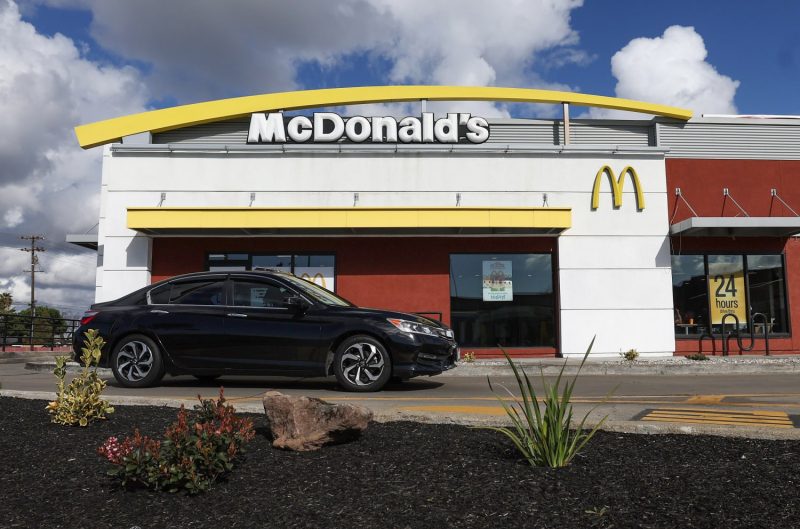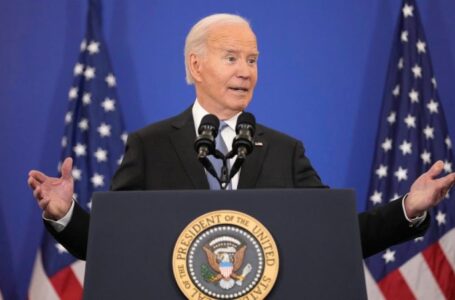A small minority of Israeli hostage families don’t want a Gaza deal. Here’s why
McDonald’s rising prices pushing some diners away


McDonald’s reported mixed quarterly results Tuesday as its reorganization weighed on its profit and boycotts hurt its Middle Eastern sales.
The company also continues to see consumers worldwide pull back on their restaurant spending.
“Consumers continue to be even more discriminating with every dollar that they spend as they faced elevated prices in their day-to-day spending, which is putting pressure on the [quick-service restaurant] industry,” CEO Chris Kempczinski said on the company’s conference call.
He added that McDonald’s has to be “laser focused” on affordability to attract diners.
Shares of McDonald’s fell 1.7% in premarket trading.
McDonald’s reported first-quarter net income of $1.93 billion, or $2.66 per share, up from $1.8 billion, or $2.45 per share, a year earlier. The company recorded a pretax charge of $35 million tied to its reorganization, which was announced more than a year ago.
Excluding restructuring charges, the fast-food giant earned $2.70 per share.
Net sales rose 5% to $6.17 billion. The company’s global same-store sales increased 1.9% in the quarter, falling short of StreetAccount estimates of 2.1%.
McDonald’s reported U.S. same-store sales growth of 2.5%, missing expectations of 2.6%. The chain said that the average check grew thanks to higher menu prices. But by raising prices, McDonald’s has also scared away some of its low-income customers.
The chain has rolled out an improved version of its burgers nationwide, with advertising featuring its Hamburglar mascot, as it tries to convince customers that its prices are worth it. The company’s chefs have also been working on a larger burger, which it plans to test in several markets later this year before a global launch.
Demand in the company’s international developmental licensed markets was even weaker. McDonald’s said the segment’s same-store sales fell 0.2%, marking the first time since the pandemic that one of the chain’s divisions reported a same-store sales decline.
The segment includes restaurants in the Middle East, which have been roiled by the Israel-Hamas war and related boycotts, which started after McDonald’s Israeli licensee offered discounts to soldiers. Earlier this month, McDonald’s bought the 225 restaurants operated by its Israeli franchisee.
However, the company said that same-stores sales in other licensed markets, like Japan and Latin America, grew for the quarter. McDonald’s international operated markets segment, which includes Germany and the United Kingdom, reported same-store sales growth of 2.7%. France’s same-store sales declined in the quarter.











